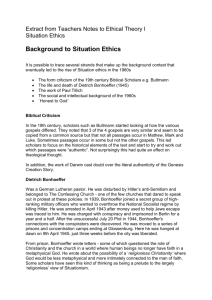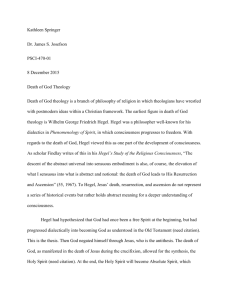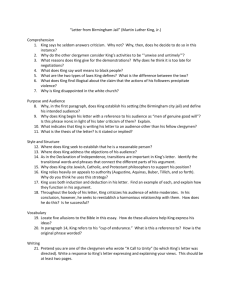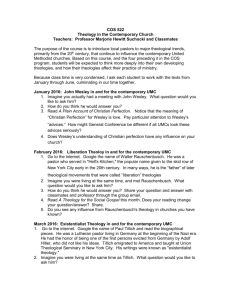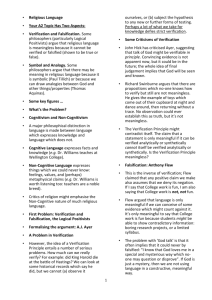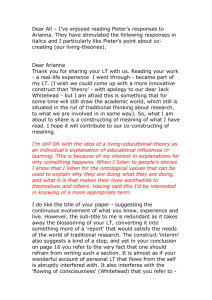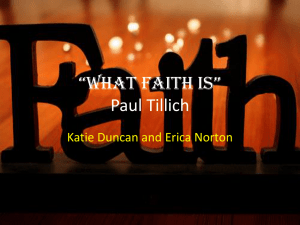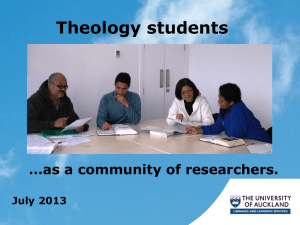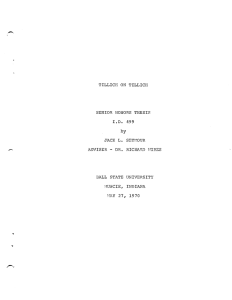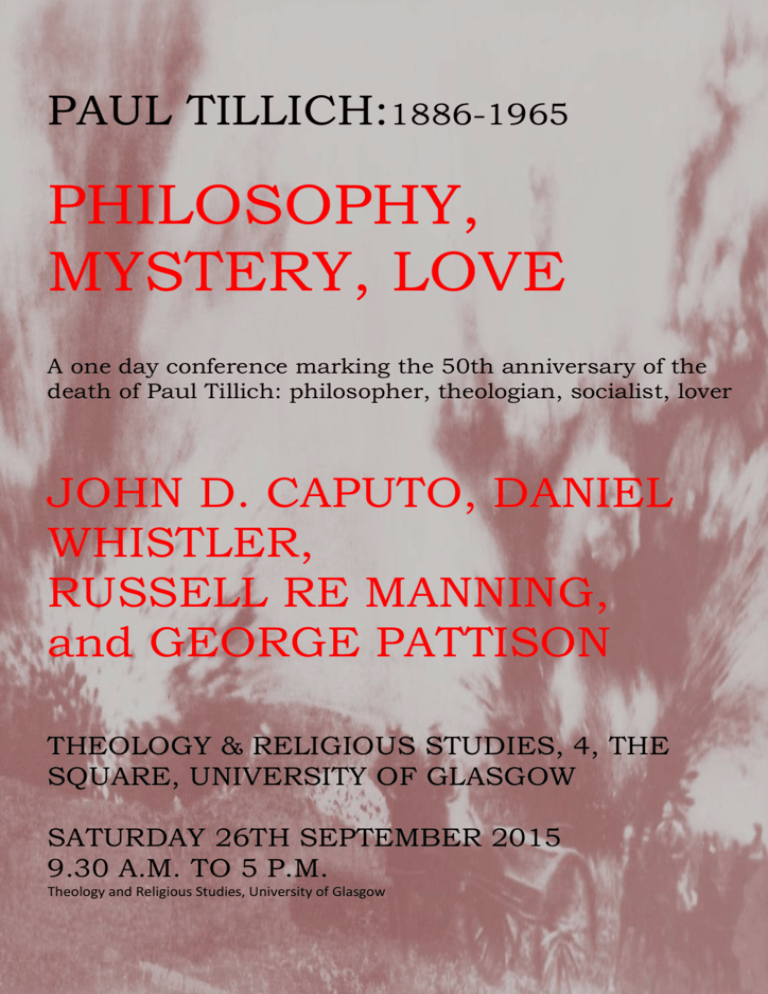
PAUL TILLICH:1886-1965
PHILOSOPHY,
MYSTERY, LOVE
A one day conference marking the 50th anniversary of the
death of Paul Tillich: philosopher, theologian, socialist, lover
JOHN D. CAPUTO, DANIEL
WHISTLER,
RUSSELL RE MANNING,
and GEORGE PATTISON
THEOLOGY & RELIGIOUS STUDIES, 4, THE
SQUARE, UNIVERSITY OF GLASGOW
SATURDAY 26TH SEPTEMBER 2015
9.30 A.M. TO 5 P.M.
Theology and Religious Studies, University of Glasgow
Paul Tillich (1886-1965) Philosophy, Mystery, Love
Saturday 26th September 2015 at 4, The Square, University of Glasgow G12 8QQ
9.30-11 a.m. John D. Caputo Radicalizing Tillich: From the Ground of Being to the Event
After locating the radicality of Tillich in his critique of God as a Supreme Being or highest existent as half-blasphemous and
mythological, I go on to criticize the alliance of his notion of the “ground of being” with classical metaphysical theology. I propose the
need to push past the ground of being to what Derrida call the event by way of a comparison of Tillich’s concept of the unconditional
with Derrida’s notion of the unconditional without sovereignty and of Tillich's generalized Protestant Principle with what I will call
Derrida's Jewish Deconstructive Principle.
11.15 a.m.-12.45 p.m. Daniel Whistler The Speculative Tillich
One of the more surprising convergences between Tillich and recent continental philosophy is the concept of the
correlation. While there is little sense in attempting to pit Tillich's staunch defence of correlationism against the Meillassouxian critique,
this paper will consider the ways in which Tillich attempts to speculate through the correlation. In particular, I examine the Schellingian
basis of Tillichean speculation, and its commitment to metabasis. Not only, I will argue, does such metabatic thinking connect Tillich's
work to early modern metaphysics, it can also provide a Tillichean means of passing 'the extensity test', a key metaphilosophical virtue
in the wake of the speculative turn.
2-3.15 p.m. George Pattison Beyond Words: The God above God and the God after God
In the 1950s and 1960s Tillich’s discussion of God’s transcendence over all symbolic expressions, including the key terms of classical
Christian theology drew much attention. However, in the wake of theology’s linguistic turn in the 1970s and 1908s this discussion came
to seem obsolete. This is in part because Tillich’s thought was pressed into the presuppositions of an epistemological debate that
excluded the possibility of a radically eschatological approach to divine mystery that, I shall argue, is central, if inconsistently so, in
Tillich’s thought as a whole.
3.30-4.45 p.m. Russell Re Manning Dark Reflections: Tillich, Sex, and Ambiguity.
In his highly influential essay ‘Tillich, Frege, Kittel: Some Reflections on a Dark Theme’ (1975), the Scottish theologian Donald
MacKinnon passed judgement on Paul Tillich’s sex life, finding in Tillich a ‘calculated, elaborately defended, yet always elaborately
hidden perpetuation of a lifestyle involving an unacknowledged contempt...for the elementary, demanding sanctities of human
existence’ (pp.134-5). Glossing MacKinnon’s concern with Tilich’s ‘shameless and heartless sexual promiscuity’, the widely respected
Oxford historian of theology Diarmaid MacCulloch has more recently wondered ‘how far any of Tillich’s theological work can be taken
seriously’. This paper will take up MacKinnon and MacCulloch’s dismissal of the value of Tillich’s theological work on the basis of his
sexual lifestyle. I will argue against their ad hominem critiques of Tillich and suggest instead the contours of a theological assessment of
the theologian as a sexual person. In so doing, I aim to advance the analysis beyond the binary polarity of condemnation vs. apologia to
consider Tillich’s sexual life and his reception as an informative case study in the still underexplored theme of theological sexual
embodiment.
5 p.m. finish

